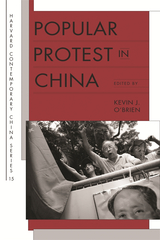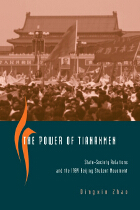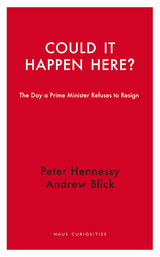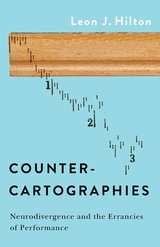
The Chinese communist state has survived massive social changes, including the introduction of capitalist markets, an ongoing explosion of technological innovation, and an unprecedented jump in wealth and education, accompanied by a major cultural transformation. How has China managed to maintain its power even as the ground has so profoundly shifted? In Politics of Legitimacy, Dingxin Zhao argues that state power can be legitimized in three ideal-typical ways: a set of values upheld by the state (ideological legitimacy), recognized political processes such as regular competitive elections (procedural legitimacy), and the state’s capacity to provide public goods (performance legitimacy).
Building on this theoretical framework, Zhao analyzes different aspects of Chinese politics, including the tragic ending of the 1989 pro-democracy movement, the weak development of mass-based nationalism in post-Mao China, the reasons behind China’s economic success, the anti-establishment tendency of the Chinese mass media and social media, and the sources of political tension in China, despite a superb economy. Moreover, Zhao’s innovative framework is widely applicable beyond China, shifting our attention from regime-type categories to the tools and relationships that determine their survival or collapse, and illuminating the current global emergence of conservatism and religious nationalism.

Do our ideas about social movements travel successfully beyond the democratic West? Unrest in China, from the dramatic events of 1989 to more recent stirrings, offers a rare opportunity to explore this question and to consider how popular contention unfolds in places where speech and assembly are tightly controlled. The contributors to this volume, all prominent scholars of Chinese politics and society, argue that ideas inspired by social movements elsewhere can help explain popular protest in China.
Drawing on fieldwork in China, the authors consider topics as varied as student movements, protests by angry workers and taxi drivers, recruitment to Protestant house churches, cyberprotests, and anti-dam campaigns. Their work relies on familiar concepts—such as political opportunity, framing, and mobilizing structures—while interrogating the usefulness of these concepts in a country with a vastly different history of class and state formation than the capitalist West. The volume also speaks to “silences” in the study of contentious politics (for example, protest leadership, the role of grievances, and unconventional forms of organization), and shows that well-known concepts must at times be modified to square with the reality of an authoritarian, non-western state.

Dingxin Zhao's award-winning The Power of Tiananmen is the definitive treatment of these historic events. Along with grassroots tales and interviews with the young men and women who launched the demonstrations, Zhao carries out a penetrating analysis of the many parallel changes in China's state-society relations during the 1980s. Such changes prepared an alienated academy, gave rise to ecology-based student mobilization, restricted government policy choices, and shaped student emotions and public opinion, all of which, Zhao argues, account for the tragic events in Tiananmen.
READERS
Browse our collection.
PUBLISHERS
See BiblioVault's publisher services.
STUDENT SERVICES
Files for college accessibility offices.
UChicago Accessibility Resources
home | accessibility | search | about | contact us
BiblioVault ® 2001 - 2025
The University of Chicago Press









